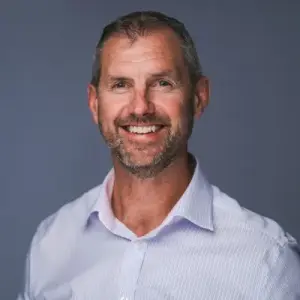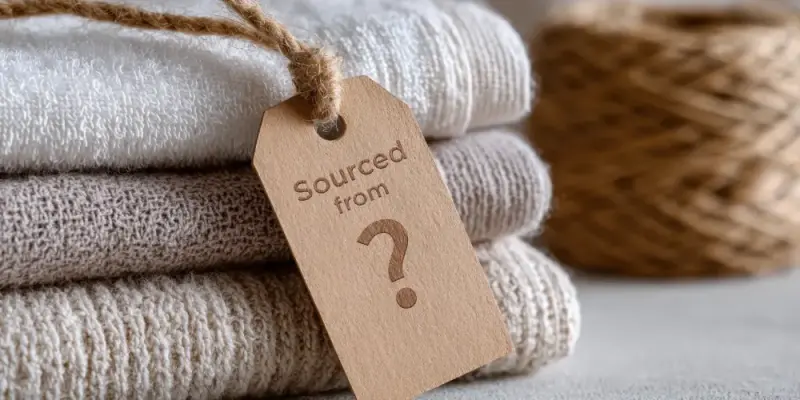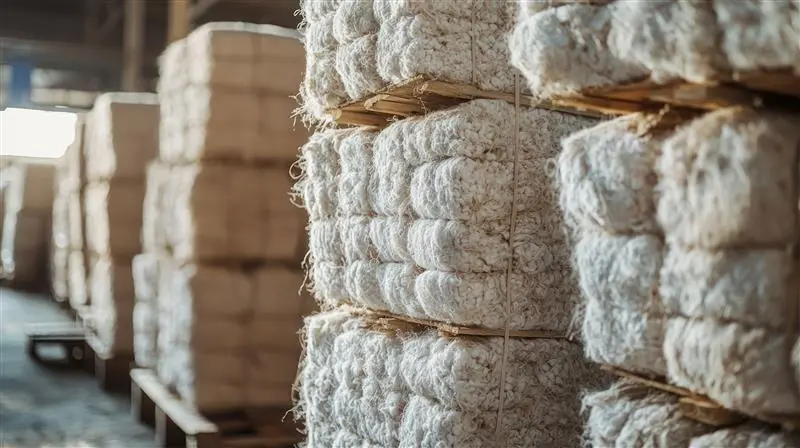The Science of Trust: Transforming Supply Chains from Source to Story
By Alyn Franklin | 2 April 2025
minutes to read.

Business today is a high-stakes game. One where the rules are constantly changing and those who aren’t prepared will fall by the wayside. Winning is no accident.
For most business leaders, the game is an international one, spanning multiple geographies and full of interdependencies. Set within this geo-political melting pot, our actions are drawing ever more scrutiny.
Across the EU and the United States, there are a number of regulations already in place or coming down the line: the UFLPA, the EUDR, the EU Forced Labour Ban, Digital Product Passports, and more besides.
To operate in these territories, businesses must prove compliance. There are a huge and growing number of variables to be managed, and that’s before we get to the rising expectations of very demanding customers.
To succeed, and build a story worth celebrating, we need to establish the certainty of what we’re selling – and that goes all the way back to the source.
Supply chains under threat
Supply chains are generally made up of smaller businesses, often with less sophisticated processes and practices. That’s been a useful dynamic for many years as the balance of risk has easily been passed down.
But not anymore. Now businesses know that they are on the hook for what goes on upstream – and pleading ignorance is not a winning strategy.
At the recent Drapers Conscious Fashion Summit in London, I spoke about why this is so critical, even in territories like the United Kingdom where there is no direct enforced legislation banning imports from regions associated with forced labor.
The absence of enforcement of this legislation isn’t liberating – it makes us more susceptible to risk. It leaves the fashion sector in danger of being infiltrated by products associated with forced labor, because these products cannot get in anywhere else. It leaves the coffee and red meat sectors at risk of products procured through deforestation.
It’s critical that our supply chains become more effective at managing their risk profile. With the right tools, direction and support, businesses can mitigate risks within their supply chains more proactively and earlier in the sourcing process.
The changing needs of business
Working with leading brands across the globe for more than 15 years, Oritain has witnessed an evolution in supply chains.
To begin with, we saw situations where businesses were attempting to avoid or manage PR crises caused by imitation or fraudulent products.
That evolved into a more procurement led approach, focused on the need for transparency and visibility, as businesses strove to answer the question ‘am I getting what I paid for?’
More progressive brands then saw the opportunity to use our solution as a differentiator. To support clearer claims of product provenance and therefore protect the brand’s ability to extract a price premium.
Over the past few years, compliance with regulation has become much more prominent. That has led to ever more data points being required from supply chains. The interface between buyer and supplier has become much broader and deeper, adding significant complexity.
Now with the increasingly protectionist government policies, the consequences of non-compliance have risen. Business leaders are now, fundamentally, solving a market access question. No compliance = no access. And no access = no business.
Truth lies in science
Oritain can help you take a small but critical step towards understanding your supply chain from raw material through to point of sale.
The cornerstone of our business is forensic science. For over 15 years we’ve been working with global brands across food and fashion to verify the origin of their commodities.
By using our forensic science to analyze samples of raw materials, we’re able to create an isotopic fingerprint that relates to the origin of where that raw material has been sourced from. But that alone is meaningless if there is no reference database to match it with.
That’s why, for one example, we have been building the most comprehensive cotton database possible over the past 10 years. We travel the globe, collecting primary samples from all regions based on expected isotopic variations, at a statistically robust level. We also monitor the globe for events that may change the isotopic fingerprint of a particular region and ensure our testing program responds to that.
We now have 96% of the world’s cotton production mapped – an achievement no-one else can match. And we’re well advanced in mapping for other commodities such as coffee and wool.
Turning source into success
The outputs of scientific testing can then be turned into stories of success for businesses. Told to consumers to build brand equity; to investors to attract capital; and to regulators to help secure access to lucrative markets.
In my role as CEO, I’ve seen numerous examples of suppliers being shocked with the results of tests that we have performed. But these results should be welcomed, because it means suppliers and brands are now operating from a position of knowledge and can begin the remedial strategies to mitigate their risk. Forewarned is forearmed.
Scientific origin verification provides an invaluable tool to transform supply chains and protect business growth – and in the competitive markets of today, that’s more essential than ever.
When it comes to product traceability, origin is integral. And Oritain is the expert in origin.
Find out how scientific origin verification can help protect and promote your business today. Contact us to speak with our team.
This article was adapted from a speech delivered by Oritain at the Drapers Conscious Fashion Summit event in March 2025.
Disclaimer: The information provided in this document does not and is not intended to constitute legal advice. Instead, all information presented here is for general informational purposes only. Counsel should be consulted with respect to any particular legal situation.




